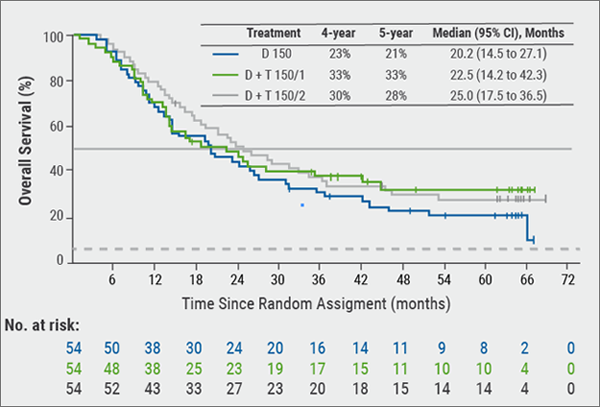Anti-PD-1 therapy induces long-term disease control in about 30% of patients with metastatic melanoma. However, two-thirds of patients are resistant to anti-PD-1 therapy and will require further treatment, Dr. Ines Pires da Silva of the University of Sydney, Australia, and colleagues note in The Lancet Oncology.
The researchers reviewed the outcomes with ipilimumab alone or with the anti-PD-1 drugs pembrolizumab or nivolumab (combination immune-checkpoint inhibitor immunotherapy) in 355 patients with metastatic melanoma resistant to anti-PD-(L)1 therapy.
Patients who received combination therapy were younger than those who received ipilimumab monotherapy (median age 61 vs. 67 years), had a better Eastern Cooperative Oncology Group (ECOG) performance status and were more likely to have BRAF or NRAS mutant melanoma.
There were no differences in other key prognostic factors, such as elevated lactate dehydrogenase and presence of liver or brain metastases; however, patients with more than three organs involved were more likely to receive ipilimumab monotherapy.
At a median of 22 months, the objective response rate was higher with combination therapy than ipilimumab monotherapy (31% vs. 13%; P<0.0001) and median overall survival was longer (20.4 months vs. 8.8 months; hazard ratio 0.50; 95% CI: 0.38 to 0.66; P<0.0001).
Progression-free survival was also longer with ipilimumab plus anti-PD-1 therapy (median 3.0 months vs. 2.6 months; HR, 0.69; 95% CI, 0.55 to 0.87;s P=0.0019).
"Surprisingly," say the authors of a linked comment, similar proportions of patients reported grade-3 to -5 adverse events in both groups (31% in the combination group and 33% in the monotherapy group).
The most common grade-3 to -5 adverse events were diarrhea or colitis (12% in the ipilimumab plus anti-PD-1 group and 20% in the ipilimumab group) and increased alanine aminotransferase or aspartate aminotransferase (12% and 9%).
This study provides "encouraging data in support of this treatment combination," Dr. Annie Wong and Dr. David Gyorki of Peter MacCallum Cancer Center, in Melbourne, Australia, write in their comment.
"In the absence of randomized and prospective trial data, this retrospective study provides the strongest evidence so far to support the use of combination ipilimumab plus anti-PD-1 in patients whose melanoma has progressed, and who are resistant to anti-PD-(L)1 monotherapy," they conclude.
The study had no specific funding. Several authors disclosed financial relationships with the pharmaceutical industry.
SOURCE: https://bit.ly/2S95tcM and https://bit.ly/33Wrii5 Lancet Oncology, online May 11, 2021.
By Reuters Staff
Posted on
Previous Article
« Add-on voclosporin improves outcome in lupus nephritis Next Article
Joint and muscle disease drugs may limit vaccine response »
« Add-on voclosporin improves outcome in lupus nephritis Next Article
Joint and muscle disease drugs may limit vaccine response »
Related Articles

December 20, 2018
CNNs and targeted combination therapy
© 2024 Medicom Medical Publishers. All rights reserved. Terms and Conditions | Privacy Policy
HEAD OFFICE
Laarderhoogtweg 25
1101 EB Amsterdam
The Netherlands
T: +31 85 4012 560
E: publishers@medicom-publishers.com

